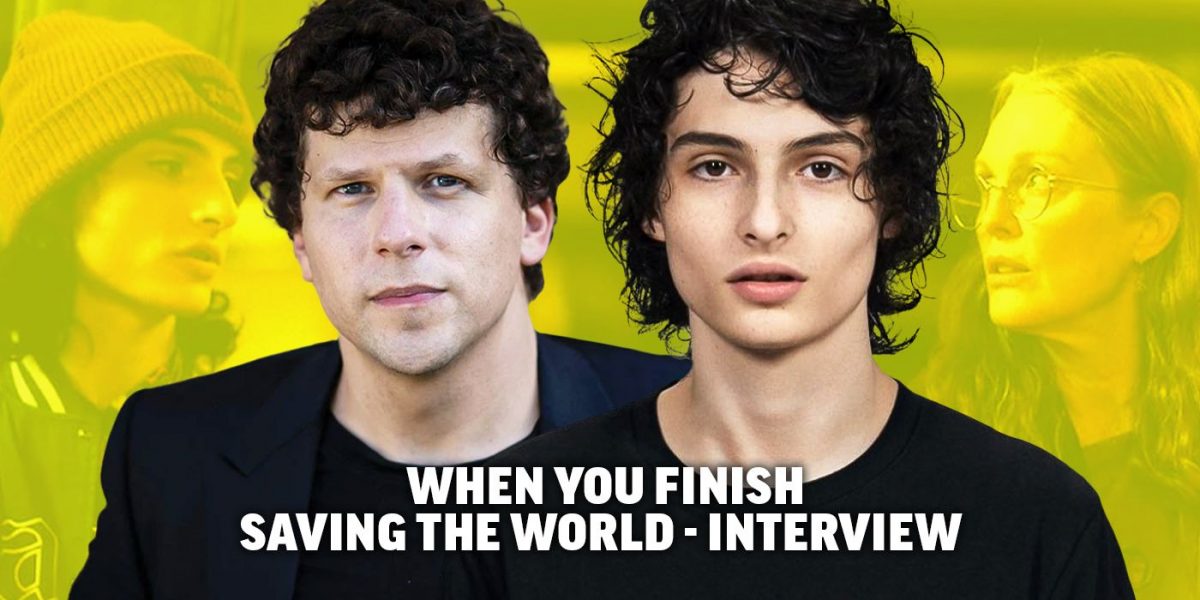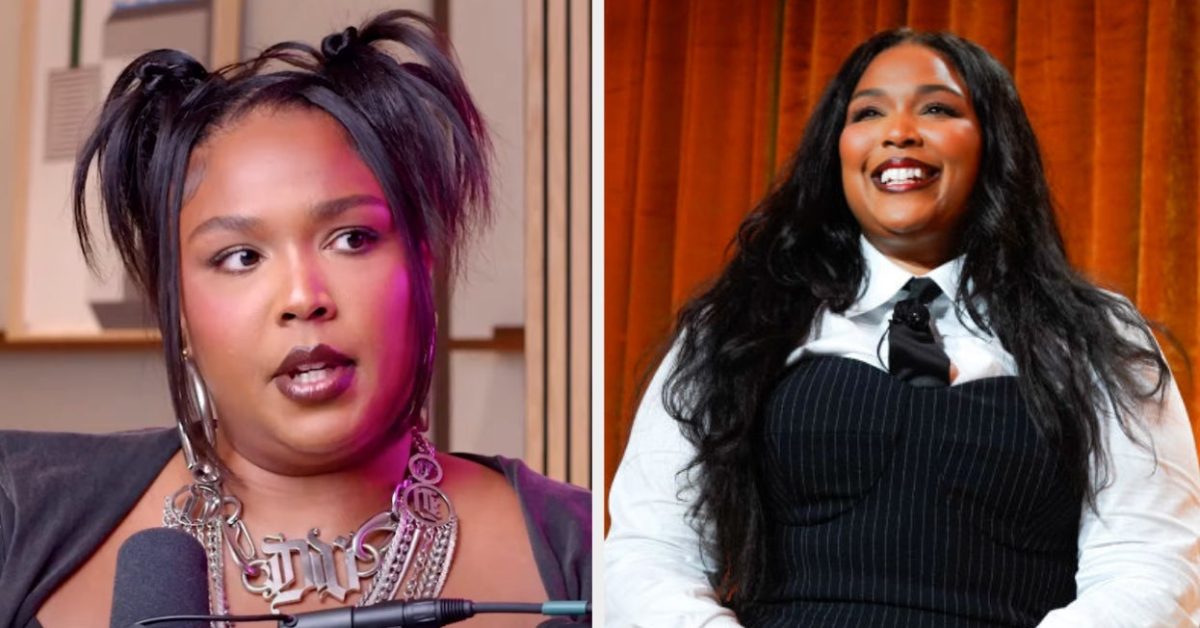
Finn Wolfhard & Jesse Eisenberg on When You Finish Saving the World & Music
Jan 17, 2023
As we head into 2023’s Sundance Film Festival, Jesse Eisenberg’s directorial debut, When You Finish Saving the World, is celebrating its wide release after premiering at last year’s Sundance. The A24 indie stars Stranger Things’ Finn Wolfhard, Julianne Moore, Alisha Boe, and Billy Bryk.
In the film – also written by Eisenberg – Wolfhard plays Ziggy Katz, a teenager who is withdrawn into his own world, consisting mostly of the music he live-streams and his interest in the socially-conscious Lila (Boe). As he works to grow and maintain his online following, Ziggy’s mother Evelyn (Moore) finds her son increasingly difficult to understand and relate to. Rather than work on the relationship with her son, Evelyn throws herself into her shelter for survivors of domestic abuse where she meets the more mild-mannered Kyle (Bryk).
Collider’s Steve Weintraub had the opportunity to speak with Eisenberg and Wolfhard ahead of When You Finish Saving the World’s theatrical release. During their interview, Eisenberg discusses how he adapted the screenplay from a story he originally wrote for Audible, and Wolfhard shares what it was like to play a character unlike himself, and how he found ways to relate to him. They also talk about why it was important for Eisenberg to make domestic abuse shelters a focus in the film, and how Wolfhard had to tone down his musical skills for the movie. For all of this and more, check out the video in the player above, or read the full transcript below.
Image via Sundance
COLLIDER: First, congratulations on making your first film, and I hope this is the beginning of you making a bunch more. So I am curious. You’ve just made your first film. Finn, you’ve just made your first film, but you didn’t put Jesse in it. And I’m just curious if this is the beginning of you guys swapping where Finn will make a movie and Jesse will be cast, and Jesse, you’ll make a… You see where I’m going with this?
FINN WOLFHARD: Right. Yeah. Yeah. It’s kind of a switch.
JESSE EISENBERG: Yes. I did visit Finn’s set in very rural Ontario.
WOLFHARD: Yeah.
EISENBERG: But still no role.
WOLFHARD: Yeah, yeah. Yeah. No, I just thought it would be appropriate for him to not be in films anymore. For people to stop giving just the constant–
EISENBERG: Right. Exactly. Yeah. Based on my direction.
WOLFHARD: Right. Exactly. Yeah.
Well, for people that don’t realize, this was based on a podcast. It’s not the same as the podcast, this is a different thing. How did you decide what you wanted the film to focus on after making the podcast?
EISENBERG: Well, I had written this story for Audible, and one of the sections of the book was told from the perspective of Finn’s character, and he was talking about his relationship to his mother, but we never actually got to meet his mother in that story. And I thought her perspective was also so interesting. So after I finished the Audible book, I decided to write a story from her perspective. And I also had written his perspective, and I thought it’d be such an interesting clash of cultures, of ideologies, of generations. He plays a guy who’s very popular online, playing his music to thousands of adoring fans, and his mother is a social justice activist who runs a shelter, and they have to live in the same house with each other. And there’s a clash of ideologies, cultures, generations, and values.
Image via A24
Finn, I definitely want to know…when I was watching the movie, I wanted to strangle your character every time he says, “I have 20,000 followers online.” Was it fun playing a role like that, or was it tough saying lines that maybe you disagree with?
WOLFHARD: I don’t know. I think I had to figure out how to agree with everything that he was saying. I think that’s part of the reason why I like playing the character so much, because I felt really sorry for him. I also think what Jesse was saying earlier is that he’s incredibly popular online, but very unpopular in real life, which I thought was an interesting thing, [and] which is, I think, what informs him to be so desperate and annoying in real life is that no one is actually really paying attention to him in real life. It’s why he dresses the way that he does, or the way that he talks is because he’s incredibly insecure. And I found that kind of sad, and I related to the kind of feeling, the urgency, to perform for people. And so it was weirdly… I mean, it was incredibly hard, but it was a character that I identified with a lot, for better or for worse, I guess.
EISENBERG: And Finn is such a sweet, thoughtful, sensitive person, and so you have this character who’s saying these really pompous things-
WOLFHARD: [laughs] Arrogant things.
EISENBERG: …but told from an actor who’s so sweet. And this is what I love about acting and why I like writing characters is because when you cast something in a great way by having an actor with Finn’s skillset and his natural inquisitiveness and thoughtfulness and sweetness, it can offset a character saying something obnoxious.
Image via A24
It’s why I think a lot of people enjoy Jason Bateman. He says crazy-
WOLFHARD: Ah, yes.
He can be very mean, yet you still root for him.
EISENBERG: Right, right. We were going for the Bateman approach.
WOLFHARD: Yeah, yeah. He said, “I want you to go with Bateman.”
EISENBERG: Yeah, yeah.
WOLFHARD: He gave me a box set of–
EISENBERG: One word, two syllables.
WOLFHARD: Bate-man.
One of the things that I really appreciated, Jesse, about the film is you had Julianne Moore’s character work at a shelter, and I don’t think enough light is shown on shelters and the amazing work they do for families in need. I know that’s an important part of your life. Why was it important to add that to the film?
EISENBERG: Yes, yes. I’ve been volunteering on and off with the shelter for about 15 years. My mother-in-law ran a shelter in Indiana for 35 years, and it’s an amazing place, and I had the incredible fortune to be able to not only volunteer there, but learn about the wonderful vital work that they do, and to get to see inside and see how an operation like that works. Not just as a volunteer, but as a son-in-law and as a husband to my wife who’s been working at the shelter since she [was] a kid, translating for Spanish speakers who are in the shelter, or volunteering in middle schools to teach about issues surrounding domestic intimate partner violence. And so when I’m writing, I’m trying to write about all the things that I know, and I’m interested in, and that I hope other people would get to know and [also be] interested in.
Image via A24
Obviously, the songs play a massive part of this movie. Can you talk about, for both of you, making sure the songs reflected what you both wanted for the character, or just getting these things on screen, and making sure you’re both happy?
EISENBERG: Yeah. Well, Finn is an incredible musician and a rockstar. So he has this incredible skill. I mean, the tough thing is when you have a part that has a skill. Normally you’re trying to desperately teach an actor to learn a little bit – like you were on the set of Now You See Me, where the actors were all these inept magicians trying to learn magic. Finn, it was the exact opposite. We had to make him less great than he is because he’s very naturally talented. So, how did you do that?
WOLFHARD: [to Eisenberg] And how did you do the LePaul Spread?
EISENBERG: Yes, exactly. That is hand double. What did you do?
WOLFHARD: A hand double as well. No, no, it was great. I mean, Jesse wrote the lyrics for every song in the movie, and then Emile [Mosseri], who did the score and wrote the music for the film, [is] amazing as well. But they were really nice in letting me collaborate with them and put a little spin on stuff. But yeah, no, I thought it was incredibly fun to do that.
EISENBERG: But you’re being humble. We would say, “Finn, could you just improvise for a few minutes on camera, just play anything?”
WOLFHARD: Well yeah, but that’s stuff at the end. I feel like the important stuff in the songs in the movie are–
EISENBERG: Yeah, there’s some bigger songs, but he is naturally so incredibly gifted and funny and talented, and understood the character and understood the limitations of the character’s talent to such a degree that he could improvise good music in character that’s not as good as his own music, but as good as what the character needs. It was astounding to watch him, and a lot of it made it into the movie in various places.
WOLFHARD: Right. Yeah, it was fun.
When You Finish Saving the World is in theaters beginning January 20.
Publisher: Source link
"All Of This Came Out Of Nowhere": Lizzo Publicly Responds To Sexual Harassment Lawsuits After Being Dismissed From A Case
"We're continuing to fight the other claims."View Entire Post › Disclaimer: This story is auto-aggregated by a computer program and has not been created or edited by filmibee.Publisher: Source link
Dec 27, 2024
This Fan-Favorite Elf Quote Almost Didn’t Make It Into the Film
11. Determined to maintain the old school aesthetic, Favreau told Rolling Stone he didn’t want to make the film “a big CGI extravaganza," only using the technology to add some snow. “I like motion-control, models, matte paintings,” he explained. “It…
Dec 27, 2024
Guess The Missing Word: Christmas Song Titles
The holidays are here, and there's no better way to ring it all in than a seasonal song or two. So test your yuletide knowledge by identifying the missing word in the 14 holiday songs below. Good luck! Disclaimer: The…
Dec 26, 2024
Score an Extra 40% off Fashion & More
Our writers and editors independently determine what we cover and recommend. When you buy through our links, E! may earn a commission. Learn more. Even on Christmas Day, Anthropologie has your back with an extra 40% off sale that’s practically a…
Dec 26, 2024











